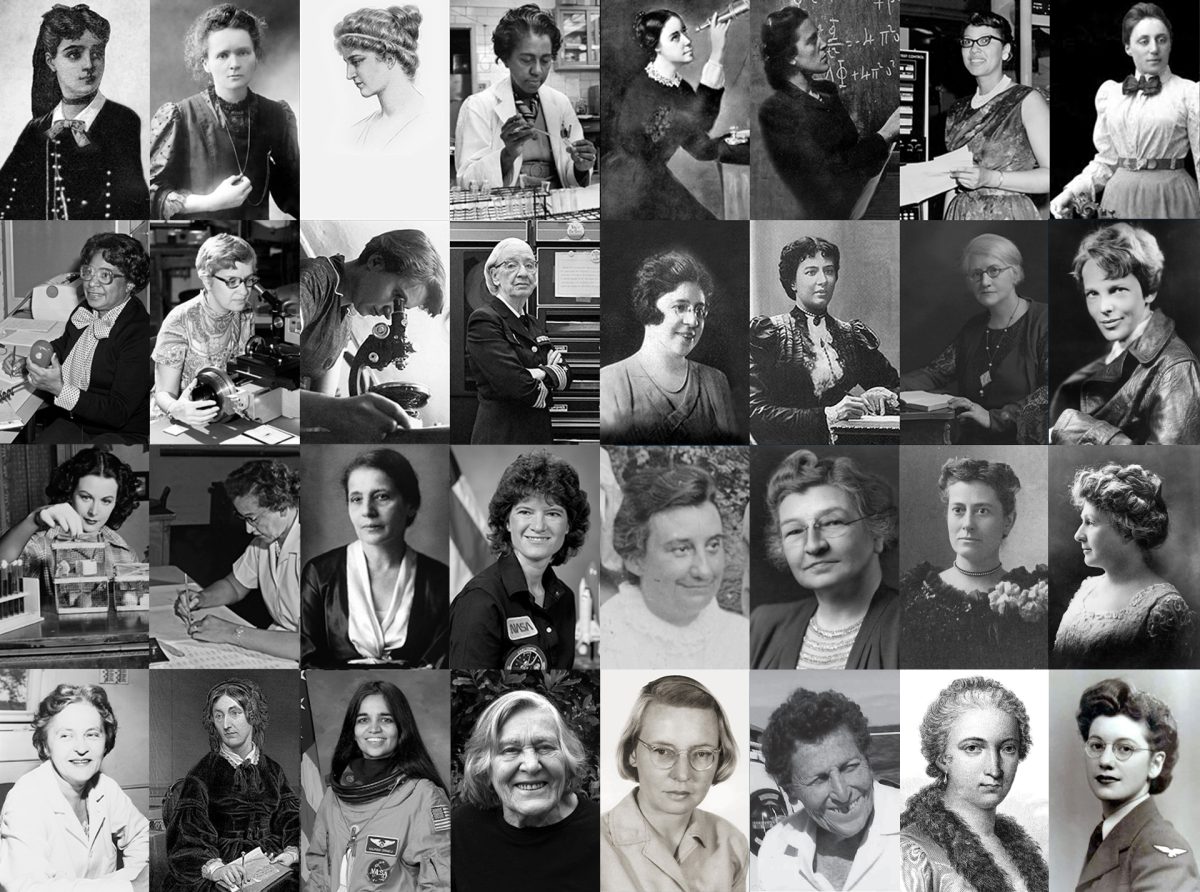In a world that is increasingly reliant on STEM (science, technology, engineering, and math), most of the women who have shaped the knowledge in these fields often are overlooked. Countless women have made remarkable contributions to the natural sciences, yet history has often failed to give them the widespread recognition they deserve. Women like Ada Lovelace, Francisca Nneka Okeke, and Duília de Mello (whose stories will be explored in this article) have shaped their respective fields and their ideas have continued to inspire future generations of women to pursue education and careers in the STEM Field. These achievements deserve acknowledgment, yet the inequality between genders in the sciences has made a challenging environment. Surprisingly, this is present at Graded, where the number of girls in advanced STEM courses is alarming. Exploring the legacies of women in today’s world is essential to creating a path toward making the STEM field an equal place where everyone can thrive.
Famous Women with Groundbreaking Discoveries in the STEM Field:
Ada Lovelace:
Ada Lovelace, born in 1815, was an English mathematician and writer. Now known as the first computer programmer who helped to revolutionize the understanding and meaning of the computer industry, she realized that a computer could calculate mathematical equations. When she revised an article in an English science journal in 1843, where she gave insights on Charles Babbage’s Analytical Engine, it included ideas that machines could perform tasks beyond arithmetic things. These insights, which were considered to be impossible at the time, made a foundation for modern computing. Nonetheless, her contributions were discovered a century after her death. Now, the second Tuesday of every October is known as Ada Lovelace Day, where her input as a scientist, engineer, and mathematician is honored. In her time, Lovelace’s merits were completely overlooked, but today the world recognizes the potential in her idea and celebrates her vision in the world of science.
Francisca Nneka Okeke:
Francisca Nneka Okeke (born 1956), from Nigeria, is a Professor of physics at the University of Nigeria, Nsukka (UNN). At UNN she accomplished many firsts: she was the first female Head of the Department of Physics and Astronomy, the first Dean of the Faculty of Physical Sciences, the first Indigenous woman who became a professor in the Faculty of Science and Engineering, and the first woman to be a professor of Physics in East Nigeria. Prof. Okeke has received several awards for her contribution to Physics. She is a laureate of the L’Oreal-UNESCO 2013 Award for Women in Science for Physical Sciences and also received accolades from Nigerian academia in 2016 as one of the 10 Most Influential Nigerian Women in Science and among the top 10 lecturers in research and publication at the University of Nigeria, Nsukka. Now, she continues her work supporting STEM and especially mentoring women and girls in the sciences as well as supervising doctorates and masters for students, who with her guidance, have won the Young Scientist Award in 2010 and many other prestigious awards.
Duília de Mello:
Duília de Mello (born in 1963) is a Brazilian astronomer who is currently a professor of Physics at the Catholic University of America and works with NASA. She is part of the Space Telescope Science Institute as a postdoctoral fellow, where she continues to work on countless research projects. She researches extragalactic astrophysics and works primarily with the Hubble Space Telescope, collaboratively with NASA. She is a member of the team taking the deepest images of the universe with Hubble. She has also discovered the supernova 1997D, the largest spiral galaxy in the world, and many stellar nurseries in colliding galaxies. Alongside her research, she has founded Mulher das Estrelas which is a project that popularizes science, encouraging women to pursue careers in STEM in Brazil.
Despite the role models girls have in the STEM Field, they are often underrepresented. This is apparent at Graded. When looked at closely, it is evident that there is a gap between the girls represented in the STEM field in comparison to the boys. In 11th Grade, IB HL AA Mathematics consists of a group of only 10 boys, and IB HL AI has merely 7 girls. Furthermore, in the two IB Physics HL courses, a total of 4 girls are enrolled, with just 2 girls in each class. Gabi Castro, one of the four girls taking Physics this year mentioned that “It is unfortunate that so few girls are taking physics this year. The class lacks perspective and voice from girls. I believe that as a community we need to target a younger audience and encourage more girls to do STEM.” Likewise, a junior, Luisa Ansanelli, talked about her experience in a VEX Robotics Competition in Calgary, Canada last year. She remarked that it “consisted of mostly boys in the competition groups. It was a bit discouraging and not expected, as our group did not reflect that at all. Yet, I also noticed that this was the case for only my Advanced Robotics class. In the other classes at Graded, the number of girls was very low.”
Senior, Luisa Gonçalves reflected on her experience both in and outside of Graded and stated that “although the STEM world continues to be dominated by the male gender, I am progressively more confident in the participation of women in the fields. In a summer program at Northwestern University, my Game Theory class consisted of 3 girls and 32 boys. I was unavoidably shy at first, but in a few minutes I was approached, making friends who did not look down on me for being a girl. The same goes for Graded: the beginning is always challenging, but my colleagues are extremely supportive and inclusive. They make the undeniable gender disparity in STEM fields irrelevant, motivating me to pursue what brings me the most joy.” These diverse perspectives from the students at Graded highlight the urgent need to encourage more girls to be involved in these fields allowing them to follow their passion and continue speaking out about the inequalities.
Looking at a different perspective, Ms. Hughes, an IB Biology teacher here at Graded, commented that the “representation of women in STEM is increasing.” She mentioned that she “thinks it’s really nice that we are making a conscious effort to promote women in STEM at Graded, for example in the women in science article from the Graded Gazette, making room for people to be able to share their stories and experiences.” She adds that when she was in school, most of her science teachers were male so she shares that it’s “nice that there are so many female science teachers at Graded. We just need to be aware and mindful in terms of the way we go about promoting more STEM activities in schools. When you hear enthusiastic discussions from lower school students we need to capture that and not let that get lost along the way, we must encourage curiosity throughout little girls and not dismiss it at all.”
All of these stories illustrate the large talent that women have and how relevant they are in advancements in the scientific field. When women are encouraged to participate and allowed to freely follow whatever their passion is without boundaries, they are able to accomplish so much and contribute to the STEM field to a great extent, and that is shown by their legacies. In the school community, the gap in girls’ participation in STEM classes should be addressed as a priority. Women’s accomplishments must evolve from being overlooked to becoming recognized examples, inspiring girls to excel in the sciences.
Sources:
https://lemelson.mit.edu/resources/ada-lovelace














